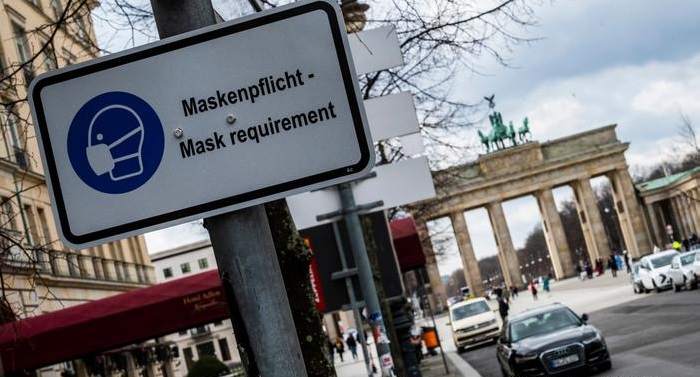
Germany must bring down coronavirus infections in the next few weeks or risk new virus mutations that are resistant to vaccines, Chancellor Angela Merkel's chief of staff Helge Braun told a newspaper.
"We are in the most dangerous phase of the pandemic," he added. "The next few weeks will determine whether we can foreseeably get the pandemic under control."
If the number of infections rises rapidly again, there is a growing danger that the next virus mutation will become resistant to the vaccine, Braun said.
"Then we would need new vaccines, then we would have to start vaccinating all over again," he pointed out.
Curfews and testing
To curb the virus' spread, Braun called for the imposition of stricter measures and night-time curfews in regions with high numbers of new infections.
He spoke out in favor of additional curbs in regions where the number of cases per 100,000 people in the last seven days is more than 100. "That's where regional curfews in the evening and at night can help, because we have the highest infection rates at meetings in people's homes."
He also stressed the importance of testing in reducing virus transmission, urging firms to compulsorily test their workers twice a week.
Speaking to a newspaper, Social Democratic Party (SPD) politician and public health expert Karl Lauterbach called on the federal and state governments to immediately implement a "hard lockdown," citing the sharp rise in infections.
"It won't work without a hard lockdown," Lauterbach stressed, defending his call for nationwide curfews. "Curfew restrictions from 8 p.m. for two weeks would work — we've seen it in France, Britain and Portugal."
The sooner a decision was taken, the more lives would be saved, he said.
COVID cases in Germany rising again
Coronavirus infections have risen sharply in Germany in recent weeks, driven by a more transmissible variant of the virus and moves to ease some restrictions.
On Saturday, the number of confirmed coronavirus cases in Germany increased by 20,472, while the reported death toll rose by 157, according to data from the Robert Koch Institute for infectious diseases.
Braun said he expected the infection situation to ease in May, helped by the impact of vaccinations and the onset of warmer weather: "By Whitsun (May 23) we will see the first positive effects — provided the situation doesn't get out of hand by then."
Meanwhile, popular frustration is growing over the government's pandemic management. Opinion polls indicate that support for Merkel's party has been dropping ahead of a national election in September.